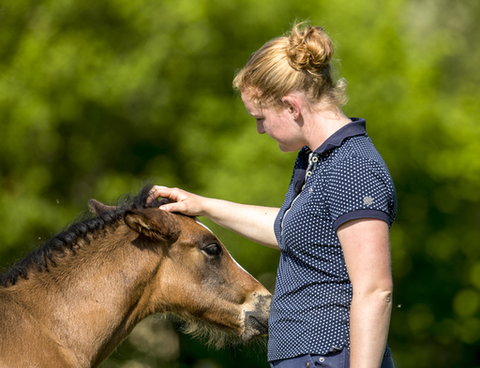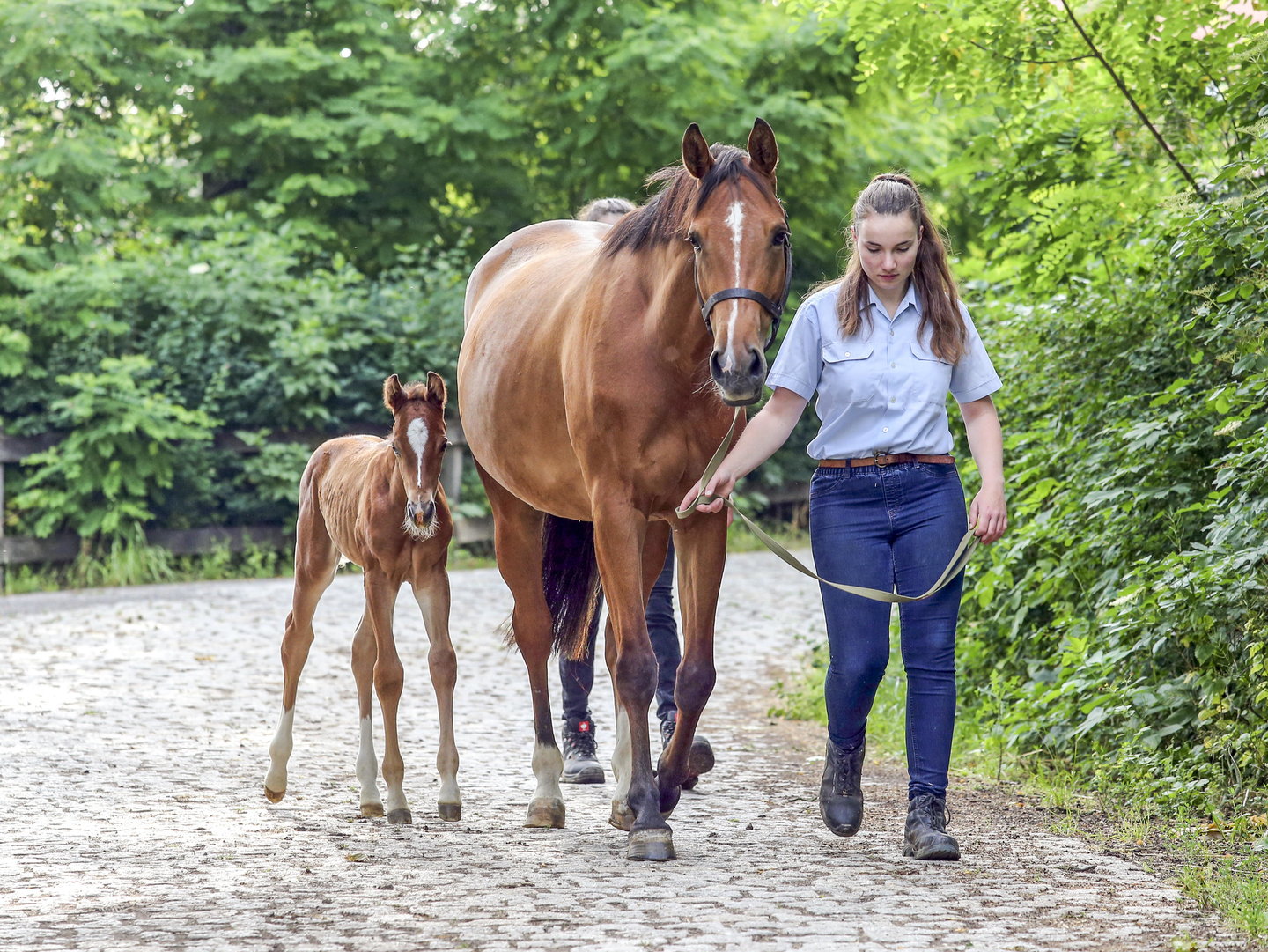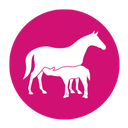
First Week after Birth

Contact
Make sure that your foal's first contact with humans is a pleasant one. First make contact with its mum. As soon as you stroke or brush its mum, you will attract the foal's attention, as foals are incredibly nosey and will come over to have a sniff, then retreat and then come back again. Get the foal to come to you. Stay calm and allow the foal the time it needs to get used to your presence. Make sure you stand close to the mare throughout, so the foal will not get scared.


Temperature
Check the mare's temperature twice a day for the first three days after foaling. The temperature must be below 38.5 degrees. If the temperature exceeds this, then contact your veterinarian.
Naming your foal
Once your foal is born, you are bound to want to name it as soon as possible. Carefully check beforehand if there are any specific guidelines for this. Various studbooks adopt a ‘letter system’, which means that foals from a certain year will all get names starting with the same letter.

Some foals are born in a field, others in a stable. Your foal can go outside from its very first day, if the weather allows and it is not too cold or too wet. Exercise will be good for developing its tendons and connective tissue.
It is best to have two of you there when the foal goes outside for the first time. Make sure someone is holding the mare. A second person can gently hold an arm behind its hindquarters, and the other arm in front of the foal's chest. This will allow you to gently steer it in the right direction, making use of its natural reflexes. This is because a foal will automatically move forward when it feels pressure applied above its hock. Be careful with this in the beginning as the foal may instinctively lash out. Do not let it anger you as it is not meant to harm at this stage.
Once out in the field, the foal should fend for itself. Make sure any fencing is not made from mesh or barbed wire. If you have a smooth wire, then hang little strips of fabric from it so it is properly visible.

Natural behaviour
Particularly in the beginning, the mare will stay close to her foal. She will always try to position herself between others and her foal. In nature, an ‘aunty’ will keep the rest at a distance and she will usually also attend the foaling process. Some mares are very dominant when trying to protect their offspring in stables. It is best to go with this natural behaviour.

Good quality concentrate
The period during which the foal is nursed by its mum will take a lot of energy out of the mare. It is best to give your mare a good quality concentrate during this whole period. Pavo PodoLac is an excellent complement for your mare's requirements. So if you opted for Pavo PodoCare for the gestation period, it will be wise to move onto Pavo PodoLac after foaling. It is important to continue to observe your mare closely to check whether you need to adjust the quantity. There is no set standard for this. It will be best if your mare has a BCS of 5.
It will be fine to continue feeding your mare Pavo PodoLac for at least the first three to four months after foaling.
Tip!
Do not forget to provide drinking water. It is highly important for your mare to have unlimited access to fresh drinking water at all times.
Registering Your Foal
In accordance with European regulations, all horses and ponies must have an equine passport and be microchipped from 6 months old. Therefore, it is important to have your foal registered with a passport issuing organisation such as KWPN, or another studbook. By registering your foal, it will be microchipped and given a passport.

